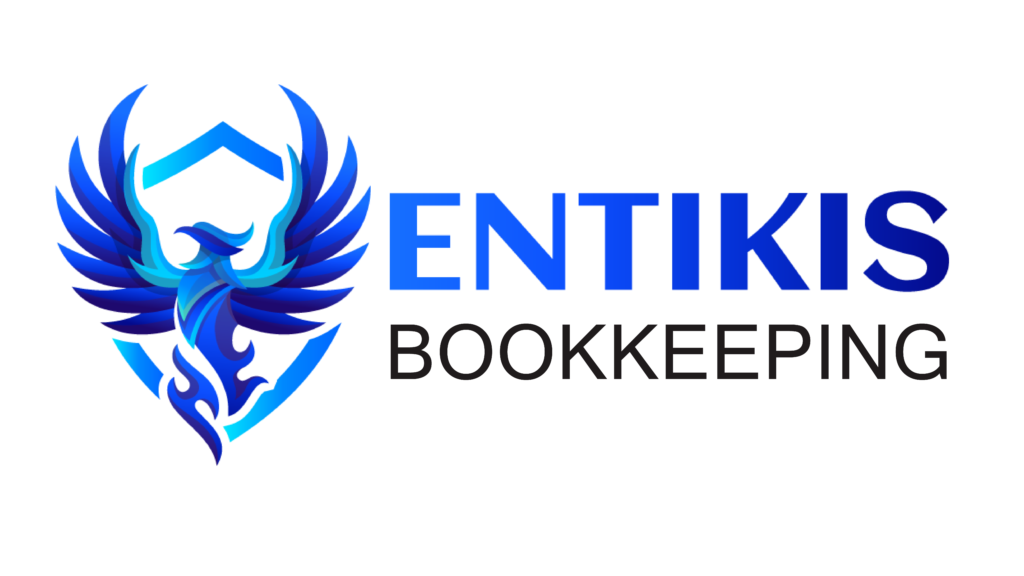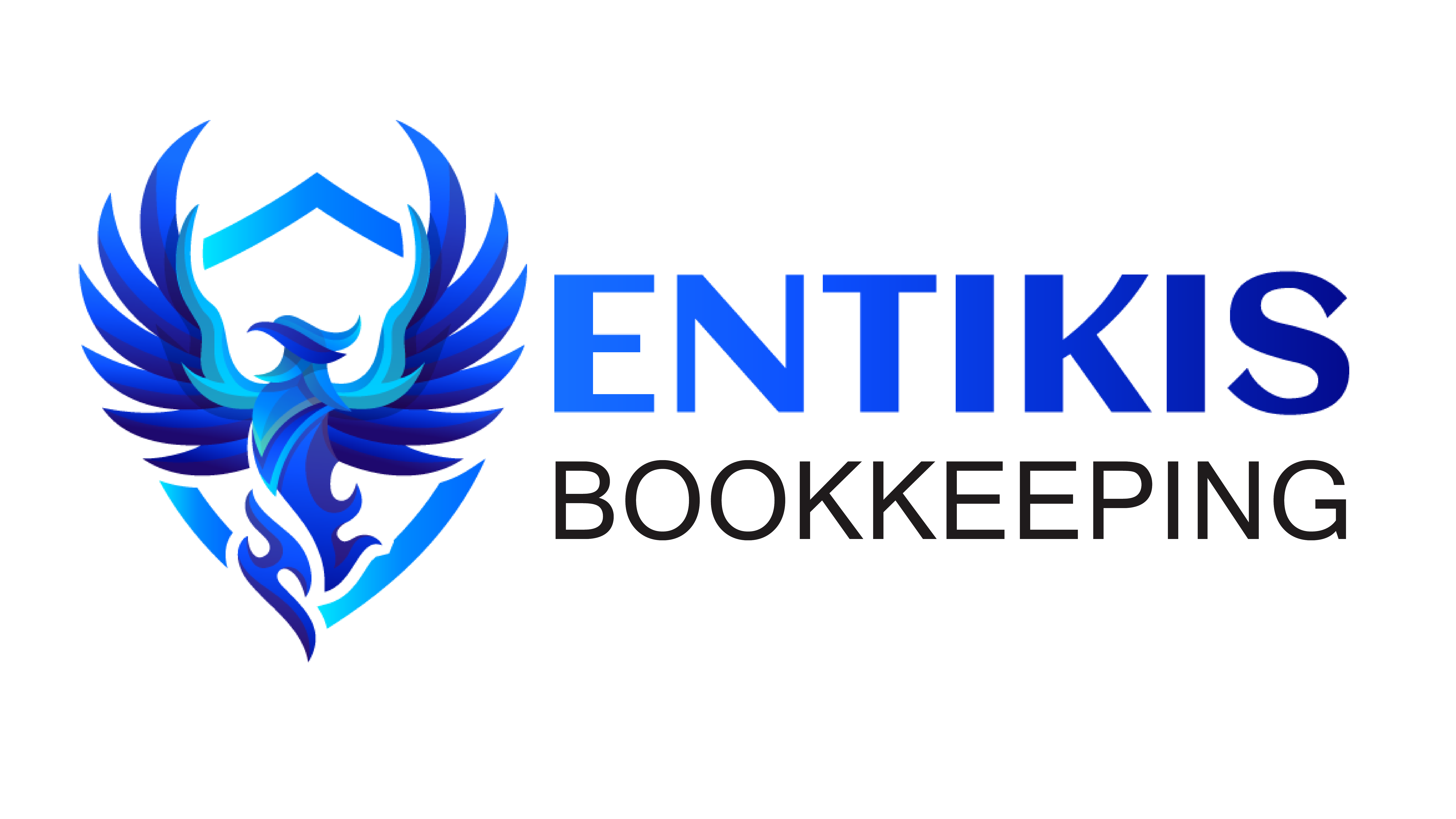
Accounting Software: Choosing the Right One is A Crucial Decision for Your Business
Selecting the appropriate accounting software is a critical decision for any business, regardless of size or industry. As a bookkeeping firm committed to helping businesses optimize their financial processes, Entikis Bookkeeping understands the significance of choosing the right software solution. In this guide, we will explore the factors to consider when selecting accounting software and highlight the benefits of choosing the optimal solution for your business success!
Understanding Your Business Needs: The First Step in Selecting Accounting Software
In the modern business landscape, accounting software has become an indispensable tool for managing financial tasks efficiently. However, with a plethora of options available in the market, selecting the right accounting software can be a daunting task. Before diving into the features and functionalities of different software solutions, it’s essential to first understand your business needs. This initial step is crucial in ensuring that the chosen software aligns with your specific requirements and contributes to the overall success of your business. Let’s explore why understanding your business needs is the cornerstone of selecting the right accounting software.
Tailored Solutions for Different Business Types:
Every business is unique, with its own set of operations, workflows, and financial requirements. Whether you’re a small startup, a mid-sized enterprise, or a large corporation, selecting accounting software that caters to your specific business type is essential. For instance, small businesses may prioritize ease of use, affordability, and basic accounting functionalities, while larger enterprises may require more advanced features such as multi-currency support, scalability, and integration with other enterprise systems.
Key Considerations When Assessing Business Needs:
Business Size and Complexity: Assess the size and complexity of your business operations. Determine whether you need a simple accounting solution for basic bookkeeping tasks or a comprehensive ERP system for managing multiple business functions.
Industry Requirements: Consider the unique accounting and reporting requirements of your industry. Certain industries may have specific compliance regulations, such as GAAP (Generally Accepted Accounting Principles) for finance or HIPAA (Health Insurance Portability and Accountability Act) for healthcare, which need to be addressed by the accounting software.
Scalability: Evaluate the scalability of the accounting software to accommodate the growth of your business. Choose a solution that can seamlessly adapt to your evolving needs and handle increased transaction volumes without compromising performance.
Integration Capabilities: Assess the integration capabilities of the accounting software with other business systems such as CRM, inventory management, or payroll. Seamless integration facilitates data exchange between different departments and enhances overall efficiency.
Mobility and Accessibility: Consider whether you require mobile access to your accounting data for remote work or on-the-go decision-making. Cloud-based accounting software offers the flexibility of accessing financial information from any device with an internet connection, making it ideal for businesses with distributed teams or remote work environments.
Conclusion:
Understanding your business needs is the foundational step in selecting accounting software that best suits your requirements. By identifying your business size, industry-specific requirements, scalability needs, integration capabilities, and mobility preferences, you can narrow down the options and make an informed decision. Ultimately, choosing the right accounting software empowers you to streamline financial processes, gain valuable insights into your business performance, and drive sustainable growth and success in today’s competitive business landscape.
Features and Functionality: Evaluating Key Considerations
When evaluating accounting software options, it’s crucial to assess the features and functionality offered by each solution. Look for core accounting capabilities such as invoicing, expense tracking, bank reconciliation, financial reporting, and budgeting. Additionally, consider whether the software integrates with other essential tools and platforms your business uses, such as payment processors, inventory management systems, or customer relationship management (CRM) software. Choosing a comprehensive solution that meets all your accounting needs can streamline your financial processes and improve efficiency.
Core Accounting Features:
General Ledger: The backbone of accounting software, the general ledger tracks all financial transactions, providing a comprehensive overview of your business’s financial health.
Accounts Payable/Receivable: Efficient management of payables and receivables streamlines invoicing, payment processing, and cash flow management.
Bank Reconciliation: Automated bank reconciliation ensures accuracy by matching transactions between your bank statement and accounting records, reducing errors and saving time.
Financial Reporting: Robust reporting capabilities enable you to generate essential financial statements such as balance sheets, income statements, and cash flow statements, providing insights for informed decision-making.
Additional Features to Consider:
Inventory Management: For businesses dealing with inventory, integrated inventory management features track stock levels, manage purchases, and optimize inventory turnover.
Payroll Processing: Simplify payroll tasks with integrated payroll processing, including calculating wages, withholding taxes, and generating payroll reports.
Tax Compliance: Ensure compliance with tax regulations by choosing software that supports tax calculations, filings, and reporting for federal, state, and local taxes.
Multi-Currency and Multi-Language Support: If your business operates internationally, opt for software that supports multiple currencies and languages to facilitate global transactions and reporting.
Security and Data Protection: Prioritize software with robust security measures such as data encryption, user access controls, and regular data backups to safeguard sensitive financial information.
Scalability and Flexibility: Choose scalable software that can grow with your business, accommodating increased transaction volumes, additional users, and expanded functionalities as your business evolves.
User Interface and Ease of Use: A user-friendly interface and intuitive navigation enhance productivity and reduce the learning curve for users, ensuring efficient adoption of the software across your organization.
Customer Support and Training: Assess the availability of customer support options and training resources provided by the software vendor to ensure timely assistance and smooth implementation.
Conclusion:
By evaluating the features and functionality of accounting software against your business requirements, you can select a solution that not only meets your immediate needs but also supports long-term growth and success. Whether it’s core accounting features, additional functionalities, security measures, or scalability, choosing the right software empowers you to streamline financial processes, gain actionable insights, and drive profitability in your business.
Ensuring Ease of Use
The usability of accounting software is another critical factor to consider, especially for businesses without dedicated accounting staff. Opt for software with an intuitive, user-friendly interface that makes it easy for employees to navigate and use effectively. Look for features such as customizable dashboards, straightforward navigation menus, and helpful tutorials or customer support resources. Investing in user-friendly software can minimize the learning curve for your team and increase adoption rates, leading to greater overall productivity. In the dynamic landscape of modern business, efficient financial management is essential for success. Whether you’re a small startup or a large corporation, selecting accounting software that is user-friendly and intuitive can significantly impact your operations. The usability of accounting software is a critical factor, especially for businesses without dedicated accounting staff. Opting for software with an intuitive interface can streamline processes, minimize errors, and increase productivity across your organization. Let’s explore the importance of ease of use in accounting software and how it can benefit your business.Importance of Usability in Accounting Software:
- Accessibility for Non-Accounting Personnel: Not everyone in your organization may have a background in accounting. User-friendly software makes it easier for employees from various departments to understand and use financial tools effectively, without requiring extensive training or expertise.
- Minimized Learning Curve: Complex and cumbersome software can hinder productivity and discourage employees from using it to its full potential. Intuitive interfaces and straightforward navigation menus reduce the learning curve, enabling users to quickly adapt to the software and perform tasks efficiently.
- Increased Adoption Rates: User-friendly software is more likely to be embraced by employees, leading to higher adoption rates and utilization across the organization. When employees find the software easy to use and navigate, they are more likely to incorporate it into their daily workflows, enhancing overall efficiency.
- Reduced Errors and Mistakes: Complicated software interfaces can increase the risk of errors and mistakes, particularly when users struggle to find the right tools or input data incorrectly. User-friendly interfaces with clear prompts and visual cues help minimize errors, ensuring the accuracy and integrity of financial data.
- Enhanced Collaboration and Communication: Intuitive accounting software promotes collaboration and communication among team members by providing easy access to financial information and reports. Features such as customizable dashboards and real-time data updates facilitate collaboration across departments, enabling better decision-making and strategic planning.
Key Features of User-Friendly Accounting Software:
- Intuitive Interface: Software with a clean and intuitive interface makes it easy for users to navigate and find the tools they need without confusion or frustration.
- Customizable Dashboards: Personalized dashboards allow users to tailor the software interface to their specific needs, displaying relevant financial metrics, reports, and KPIs for quick access and analysis.
- Straightforward Navigation Menus: Clear and organized navigation menus simplify the process of finding and accessing different features and functions within the software.
- Helpful Tutorials and Resources: Built-in tutorials, guides, and customer support resources provide users with assistance and guidance whenever they encounter challenges or need additional information.
- Mobile Accessibility: Accounting software that offers mobile accessibility enables users to access financial data and perform tasks from anywhere, anytime, using their smartphones or tablets.
- Integration with Other Tools: Seamless integration with other business tools and software applications enhances usability by allowing users to transfer data easily between systems and streamline workflows.
Case Studies: Success Stories with User-Friendly Accounting Software
- Startup Efficiency: A startup company implemented user-friendly accounting software with an intuitive interface, enabling its non-accounting employees to manage finances effectively without the need for extensive training. The software’s straightforward navigation menus and customizable dashboards streamlined financial processes, resulting in increased productivity and efficiency.
- SME Growth: A small to medium-sized enterprise (SME) invested in accounting software that prioritized ease of use, reducing the learning curve for its employees and increasing adoption rates across the organization. The software’s mobile accessibility and integration with other business tools facilitated collaboration and communication, driving growth and expansion for the company.
- Large Corporation Streamlining: A large corporation transitioned to user-friendly accounting software to simplify its complex financial operations and improve accessibility for employees at all levels. The software’s intuitive interface and helpful tutorials reduced errors and mistakes, enhancing the accuracy and reliability of financial data across the organization.
Conclusion:
Investing in user-friendly accounting software is essential for businesses seeking to streamline financial management, increase productivity, and drive growth. By prioritizing ease of use and accessibility, businesses can empower employees from various departments to manage finances effectively, minimize errors, and make informed decisions. Features such as intuitive interfaces, customizable dashboards, straightforward navigation menus, and helpful tutorials play a crucial role in enhancing usability and maximizing the benefits of accounting software. Whether you’re a small startup or a large corporation, choosing software that is easy to use and navigate is key to optimizing financial processes and achieving success in today’s competitive business landscape.Scalability and Flexibility: Planning for Future Growth
As your business grows and evolves, your accounting needs may change as well. Therefore, it’s essential to choose accounting software that can scale alongside your business. Look for solutions that offer scalability and flexibility, allowing you to add users, upgrade plans, or access additional features as needed. Additionally, consider whether the software offers cloud-based or on-premises deployment options, as cloud-based solutions provide greater flexibility and accessibility, particularly for remote teams or businesses with multiple locations.Security and Compliance: Prioritizing Data Protection
Data security and compliance should be top priorities when selecting accounting software, particularly for businesses handling sensitive financial information. Choose software solutions that adhere to industry-standard security protocols and encryption methods to protect your data from unauthorized access or breaches. Additionally, consider whether the software complies with relevant regulatory requirements such as GDPR, HIPAA, or PCI DSS, depending on your industry and geographic location. Prioritizing data protection ensures the confidentiality, integrity, and availability of your financial information.Partnering with Entikis Bookkeeping for Expert Guidance
In the fast-paced world of business, efficient financial management is crucial for success. However, managing finances can be complex and time-consuming, often requiring specialized knowledge and expertise. This is where partnering with a trusted bookkeeping service like Entikis Bookkeeping can make all the difference. With their expert guidance and comprehensive solutions, businesses can streamline their financial processes, gain valuable insights, and focus on what they do best—growing their business.Who is Entikis Bookkeeping?
Entikis Bookkeeping is a leading provider of professional bookkeeping and financial management services, dedicated to helping businesses of all sizes optimize their financial operations. With a team of experienced professionals and a commitment to excellence, Entikis offers a wide range of services tailored to meet the unique needs of each client.Comprehensive Bookkeeping Solutions:
- Day-to-Day Bookkeeping: Entikis takes care of the day-to-day bookkeeping tasks, including recording transactions, reconciling accounts, and managing financial data with precision and accuracy.
- Accounts Payable/Receivable Management: Efficient management of accounts payable and receivable ensures timely payments to vendors and accurate tracking of customer invoices, improving cash flow management.
- Bank Reconciliation: Entikis performs regular bank reconciliations to ensure that your bank statements align with your accounting records, identifying discrepancies and ensuring financial accuracy.
- Financial Reporting: With Entikis, businesses gain access to comprehensive financial reporting, including balance sheets, income statements, cash flow statements, and customized reports tailored to their specific needs.
- Payroll Processing: Entikis simplifies payroll processing, handling calculations, deductions, tax filings, and reporting, ensuring compliance with payroll regulations and accurate employee compensation.
- Tax Preparation and Compliance: Entikis assists businesses in preparing and filing taxes, staying up-to-date with tax regulations, maximizing deductions, and minimizing tax liabilities.
- Cloud-Based Solutions: Leveraging cloud-based accounting platforms, Entikis provides businesses with real-time access to their financial data, enabling collaboration, flexibility, and scalability.
Why Partner with Entikis Bookkeeping?
- Expertise and Experience: With years of experience in the industry, Entikis brings expertise and insights to the table, helping businesses navigate complex financial challenges and achieve their goals.
- Customized Solutions: Entikis understands that every business is unique, which is why they offer customized solutions tailored to meet the specific needs and objectives of each client.
- Time and Cost Savings: By outsourcing bookkeeping and financial management tasks to Entikis, businesses can save time, resources, and overhead costs associated with hiring and training in-house staff.
- Focus on Core Business Activities: Partnering with Entikis allows businesses to focus on their core activities and strategic initiatives, knowing that their financial management is in capable hands.
- Scalability and Flexibility: Entikis adapts to the changing needs and demands of businesses, providing scalable solutions that grow with the business and accommodate fluctuations in workload.
- Compliance and Accuracy: With a strong focus on compliance and accuracy, Entikis ensures that businesses adhere to regulatory requirements, minimize errors, and maintain financial integrity.
- Peace of Mind: Entrusting financial management to Entikis provides businesses with peace of mind, knowing that their finances are being managed efficiently, accurately, and professionally.
Client Success Stories:
- Small Business Growth: Entikis helped a small business streamline its financial processes, improve cash flow management, and achieve significant growth by providing accurate bookkeeping, financial reporting, and strategic insights.
- Startup Support: A startup entrepreneur partnered with Entikis to establish solid financial foundations, enabling them to focus on launching their business while knowing that their financial management was in expert hands.
- Medium-Sized Business Expansion: A medium-sized business expanded its operations into new markets with the support of Entikis, who provided scalable solutions, strategic guidance, and ongoing support throughout the expansion process.




